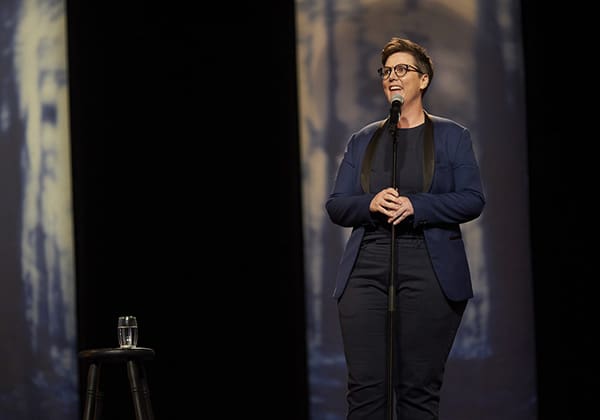When RUOK Day was introduced, most people saw it as unnecessary and pointless. It’s not hard to understand why — in a country where one of our most common idioms is “she’ll be right,” our approach to less than satisfactory situations is to simply brush it off. And while this works some of the time, it falls short as a solution to those struggling with mental illness or grief — not to mention those in precarious financial and employment situations, who lack access to mental healthcare, housing and social support.
When opening up about emotional turmoil, our first instinct as Australians is typically to make a joke about it to ‘lighten up’ the mood. Sammy Gill, a Melbourne-based comedian, notes that Australians are known for “mocking their problems.” According to Gill, Australians developed a strong undercurrent of black comedy “during the formation of modern Australian culture with successive droughts, wildfires and hurricanes, prompting [us] to resort to humour to deal with times of stress.”
A key example of an effective way that Australians use humour to lean into our vulnerability is the ABC docu-series You Can’t Ask That, in which every episode asks people who have faced the same issues “questions you’d never ask in person.” Importantly, it gives interviewees permission to be truthful without fear of judgment or stigma, partly due to the removal of a watchful audience, creating some darkly comedic and memorable moments.
You often see interviewees approach the first question with nervousness and insecurity. But that is quickly offset by the humour of unorthodox questions which put interviewees at ease before opening up about negative experiences. In the episode featuring ice users, questions such as “what does it feel like having sex on ice?” release the tension in the room, allowing interviewees to open up in subsequent questions, revealing traumatic experiences such as being charged with grievous bodily harm and affray as a result of “ice rage.”
Our tendency to find humour in painful experiences isn’t just a tactic to reduce tension. It’s also a result of Australia’s easy going, ‘can do’ attitude, which, when taken too far, hinders our ability to tackle serious conversations about personal issues. In Australian culture, as the SBS Cultural Atlas notes, people who “exert themselves a lot (in their eagerness, impatience, stress, etc.)” can be seen as exasperating.
While our carefree attitude helps us brush off everyday nuisances, this “cultural aversion from complaining, worrying too much, reflecting on mistakes and dwelling on the past” detracts us from opening up or reaching out when we are having a hard time.
Being humorous and able to ‘laugh off’ problems is a hallmark of Australian culture, and we are often trained to show a cheery, easy-going disposition in reward for increased social capital and a sense of belonging. The Aussie nature of lighthearted conversation is a key part of how we interact, from friendly chatter at your local coffee shop to building important connections in a business setting. At school, we are socialised to build social capital by being able to banter and not take things too seriously, and this attitude continues in the workplace.
The presence of dark humour is strikingly obvious in Australian society, but it has also become a hallmark of Western Gen Z humour. It is now more common than ever to turn to comedy in times of despair, something that has become even more apparent as a result of COVID-19 and the climate crisis. For Australians and younger generations, it’s become a force of habit, an antidote to an awkward or sombre situation. After all, isn’t laughter the best medicine?
And yet, as Hannah Gadsby explores in her ‘comedy’ special Nanette, there’s a dark side to this humour as well. Falling back on jokes as a way of recounting more vulnerable moments in our lives poses a problem, as it creates a tendency to “freeze an … experience at its trauma point” and “seal it off into jokes.” As Gadsby notes, “Punchlines need trauma, because punchlines need tension, and tension feeds trauma.”
As a result, comedy almost commodifies trauma for content — it takes a relatable sufferance and allows us to laugh about it. But there’s a limit to this laughter. While humour plays an important role in easing grief and breaking the ice to talk about serious issues, these benefits become purely short-term if we don’t allow ourselves to reflect on and process past experiences, rather than continuing to use humour as our sole coping mechanism for trauma.
Our tendency to pick and choose parts of stories we tell — to focus on finding the humour in our past experiences — detracts us from processing and accepting the things that aren’t so funny. It’s okay to open up about how something has deeply affected us without making a joke out of it, and we should work on making government support and mental health services more accessible when we do. RUOK Day ultimately fails because it doesn’t consider these facets of Australian society. How likely is it for us Australians to respond honestly to the question, “Are you okay?” And even when we do, how easy is it for us to access a solution to our problems?





